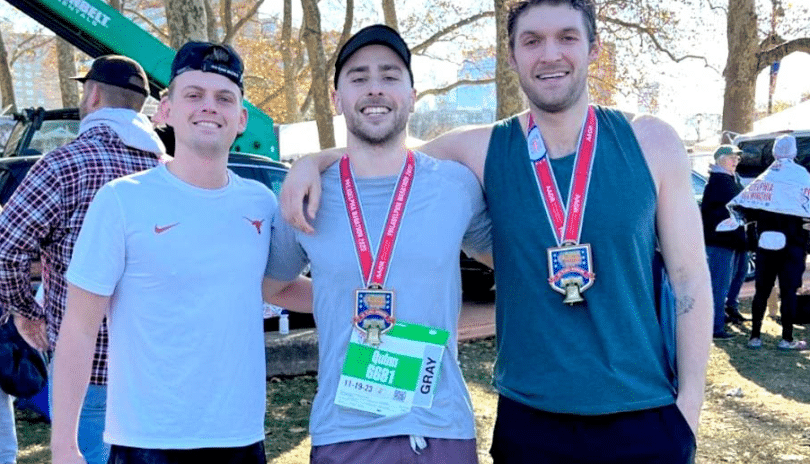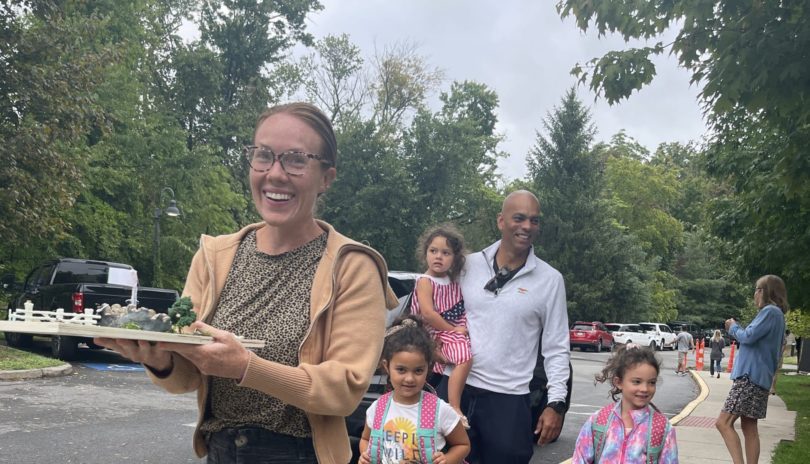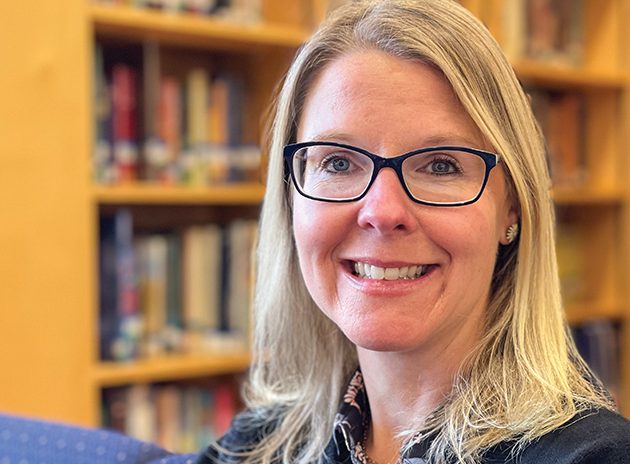Even at the tender age of 17, there’s no shortage to life’s challenges. For DCD alum Corey Predella ’18, however, embracing the school’s philosophy of Learning Is a Way of Life helps him find a way to face them. That’s especially true for a recent and particularly heart-wrenching challenge he took on — trying to find a way to help his beloved grandmother, “Baboo,” communicate with her family as she struggled with aphasia and lost her ability to speak.
Baboo was nothing short of a life force in Corey’s world, and the years of connection and conversation with her created a powerful bond between them. Baboo taught Corey to appreciate art and music. She encouraged him to take risks and loved him through every way he changed and grew. Corey knew Baboo’s entire existence thrived on communication — being able to share, understand, help and nurture those she loved with her words. As he watched her lose her ability to speak over a period of five years, he also saw her withdraw, grow sad, and face unimaginable frustration. He couldn’t just let that be, knowing what a gift the wisdom of Baboo’s words could bring. But what could one creative, tech-savvy, and loving 17-year-old do to help solve this problem? Learn. Dig deep. Do research and figure out what Baboo needed to open her lines of communication once again.
That depth of learning would require time and money. So, Corey applied for the highly coveted Alex Cohn Grant at his high school, Beaver Country Day. The Alex Cohn Grant, created to honor a former Beaver Country Day School student who passed away, is funded by donations from Alex’s family and friends. The grant offers Beaver students a chance to explore meaningful interests in depth — in particular those that could impact the world around them. With his well-thought-out research project and impassioned proposal to design a device to help Baboo and perhaps other aphasia patients communicate, Corey won the $2500 research grant. He was one of two students awarded this very high honor.
After winning the grant, Corey went straight to work, using his funds to study the neuroscience of aphasia, a cognitive decline in speech. He took an MIT open courseware class to learn about cognitive neuroscience. He also spent time learning about OpenCV, which is a computer vision platform. His goal was to build a device he later named the “Baboo Board.” This was a text-to-speech eye-tracking keyboard that allows the user to talk only using their eyes. Corey’s hope was that through this board, Baboo could form words and build sentences in a way that was simple and stress free.
Corey recently finished the first prototype, using his new, extensive education and the equipment in Beaver’s Research and Design Center, including a 3D printer and laser cutter. But he didn’t just build hardware; the project has required extensive application of the coding and programming skills he’s developed over the last several years. Corey’s next step will be to build his knowledge of PCBs (printable circuit boards) to make the next iteration of his Baboo board more compact and portable for aphasia patients.
While Corey was really excited to talk about the intricacies of his project, the growth he has experienced from the process was top of his mind. “I’ve gained so many new technical skills along the way, but I think the best thing that I’ve learned is that your idea can become real as long as you work on it bit by bit and not get too overwhelmed by all the little details from the outset. I definitely encountered problems I didn’t consider initially but I learned to work through them. Like how was I going to get all this complicated code on a tiny computer or how could I make the computer and camera really distinguish between the “e” and the “w” due to their proximity on the keyboard.”
There was much trial and error throughout the project, but Corey was quite comfortable with the process. Through his experience as a student at DCD and now at Beaver, he’s learned that iterating on an idea is the best way to refine it and make it come to life. This gave him the right mindset going into the project. “You never want to have your first idea be the final one. I made many mistakes along the way but then I had so many useful realizations too.”
The Baboo Board was a pretty major project to take on during the toughest years of high school — junior and senior year. When asked how he was able to manage this project, his classes and applying to college, Corey smiled, thinking back to his DCD experience. “What I gained from DCD was a really good work ethic and methods and systems for approaching my assignments and projects. Through Mr. Buffum’s history tests, analyzing short stories with Mr. Thacher, and learning different ways to take notes with Mr. Harrington, I learned how to prepare and know what processes and systems worked best for me. DCD teachers don’t tell you how to do things. Instead, they show you different approaches, let you test them out and choose the ones that work best for you. I felt very prepared compared to my peers when I got to high school.” Corey also learned the importance of consistency and sticking with things. That mindset has helped him be increasingly self-motivated. Working through math problems, studying for tests and quizzes, and making sure he got help when he didn’t understand something developed and reinforced his interest in solving problems. This is a skill he now uses in so many areas of his of life.
That tenacity and perseverance also served him well during the most difficult part of Corey’s Baboo Board project. Sadly, while Corey had planned to surprise his grandmother with her new communication tool, she passed away before it was completed. And while that was heartbreaking for Corey, having devoted his thirst for learning and love for Baboo to developing this communication technology was time and effort well spent and a philosophy well-lived. Learning Is a Way of Life opened up worlds of possibilities for Corey to solve one of the toughest problems he faced, and ultimately might reopen the world of communication for those who need it most.







